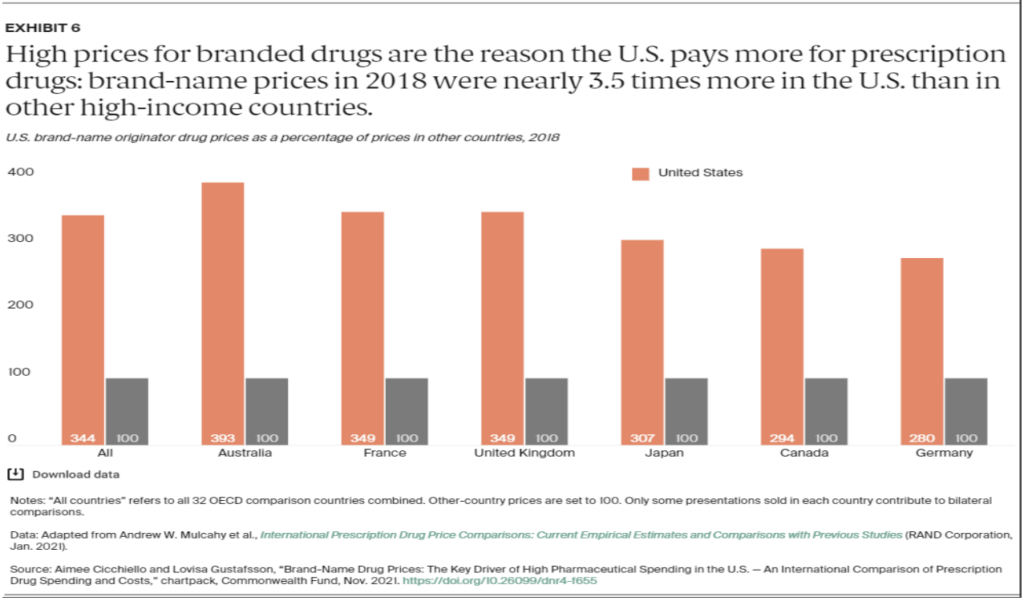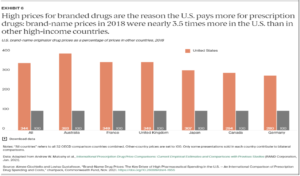Former United States Surgeon General and renowned pediatric physician Dr. C. Everett Koop once deftly quipped that though healthcare is vital to all of us some of the time, public health is vital to all of us all of the time. Public health refers to “the science and art of preventing disease, prolonging life, and promoting health through organized efforts and informed choices of society, organizations, public and private communities, and individuals” [1]. Its no surprise to us all that health matters. Yet today, our healthcare system — like any system — faces room for improvement; whether its increasing drug access, boosting the affordability of healhcare, expanding insurance programs, or centralizing federal level responses to pandemics, the field of public health saves lives by ensuring that our healthcare system is accessible, efficient, and productive.
Take, for example, the public health issue of drug affordability. In the wake of the Covid-19 pandemic, the urgency to “curb the pharmaceutical industry’s profiteering motives” has been underscored by the “inaccessibility of treatment and testing” [2]. Indeed, the United States spends nearly thrice the amount on drugs per capita than the average OECD country:

Current Empirical Estimates and Comparisons with Previous Studies (RAND Corporation, Jan. 2021). Adapted by Authors Aimee Cicchiello and Lovisa Gustaffson of the Commonwealth Fund. [3]
Source: Aimee Cicchiello and Lovisa Gustafsson, “Brand-Name Drug Prices: The Key Driver of High Pharmaceutical Spending in the U.S. — An International Comparison of Prescription Drug Spending and Costs,” chartpack, Commonwealth Fund, Nov. 2021. https://doi.org/10.26099/dnr4-f655
Why does this matter? Well, according to the Counsel for Informed Drug Spending and Analysis, nearly high drug prices can have fatal implications for millions of people [4]. And though these statistics may seem daunting, a host of researchers, policymakers, and legislators have fought for health reform in these areas. The vital factor about all of these issues, though, is discussion and awareness about them. Indeed, social injustices and atrocities are often overlooked until they are truly discussed and pondered upon; when it comes to grievous injustices, discussions about them spark social change by instilling a sense of longing for a broken status quo.
That’s what this blog is for: each week, I will post experts’ views on public health issues, ranging from drug policy, and epidemiology to health law and environmental health. The bottom line is that health should matter — not just to high-up officials or medical professionals — but to every person. Oftentimes, as we’ll see, the lack of discussion, knowledge, and transparency about public health leaves the system to being vulnerable and exposed only at those times when it matters the most — whether those times are a pandemic, steep increases in opioid deaths, or increased mortality due to antibiotic resistance [5]. By posting your opinions or reading through the blog, you’re doing your part to being educated by a myriad of sources on public health issues, as well as spurring change within the system. Health matters!
[1]: Gatseva, P.D., Argirova, M. Public health: the science of promoting health. J Public Health 19, 205–206 (2011). https://doi.org/10.1007/s10389-011-0412-8
[2] Hurley, A., Sheftel, C. M., & Canales, A. (2020). “Federal policy for lowering prescription drug prices”. Journal of Science Policy & Governance, 17(01). https://doi.org/10.38126/jspg170110
[3] “Brand-Name Drug Prices: The Key Driver of High Pharmaceutical Spending in the U.S.” Commonwealthfund.org, Nov. 2021, doi:https://doi.org/10.26099/dnr4-f655.
[4] https://www.cidsa.org/publications/xcenda-summary



